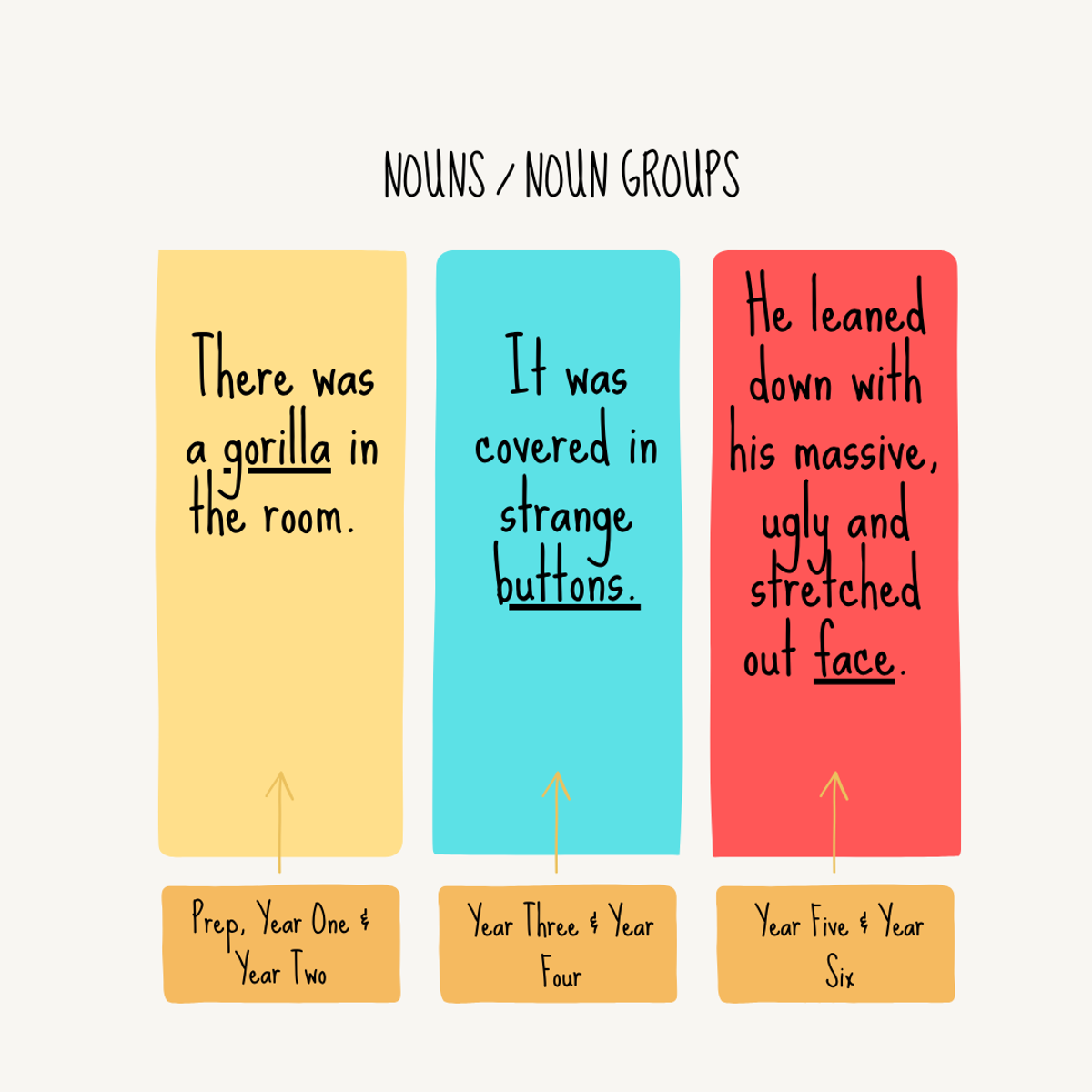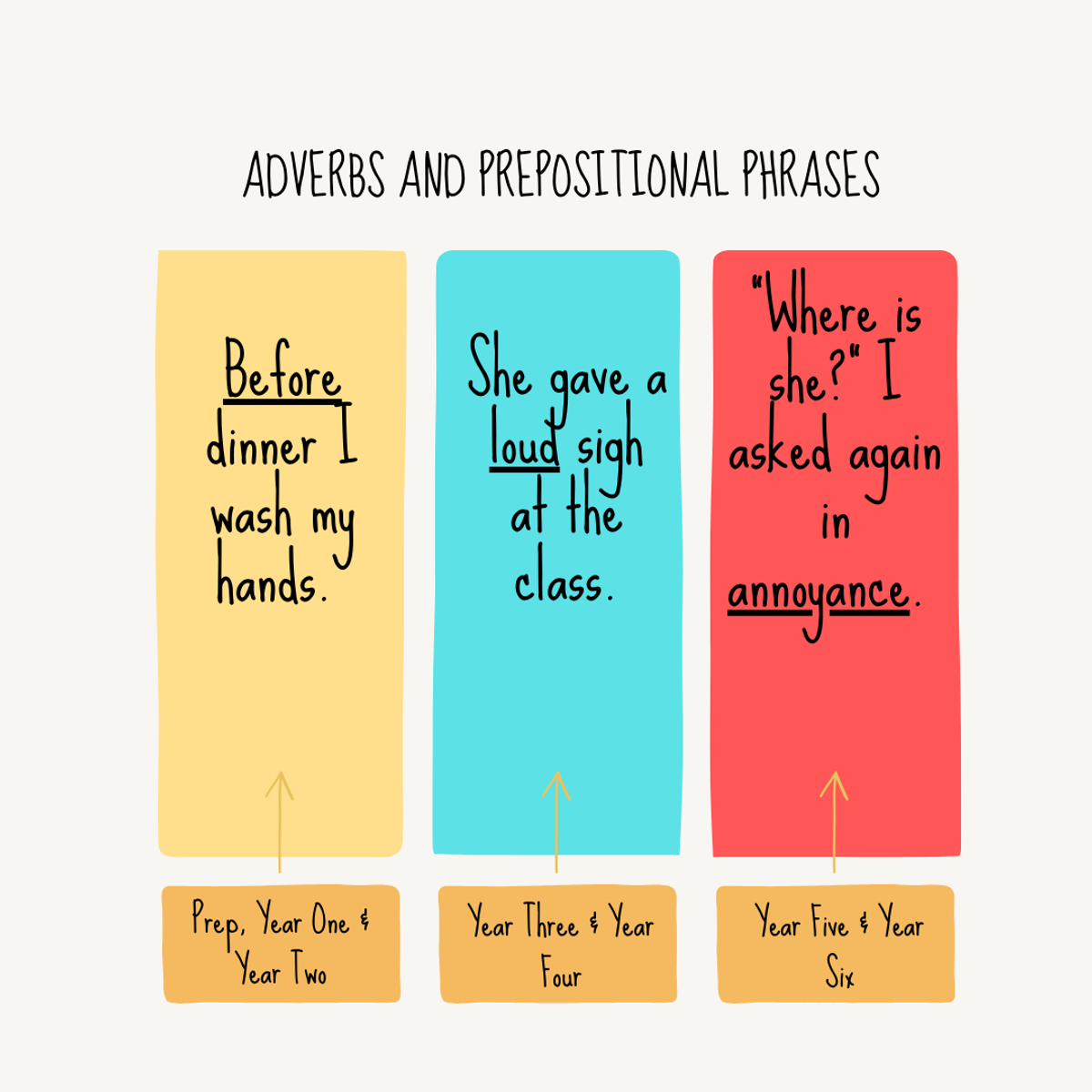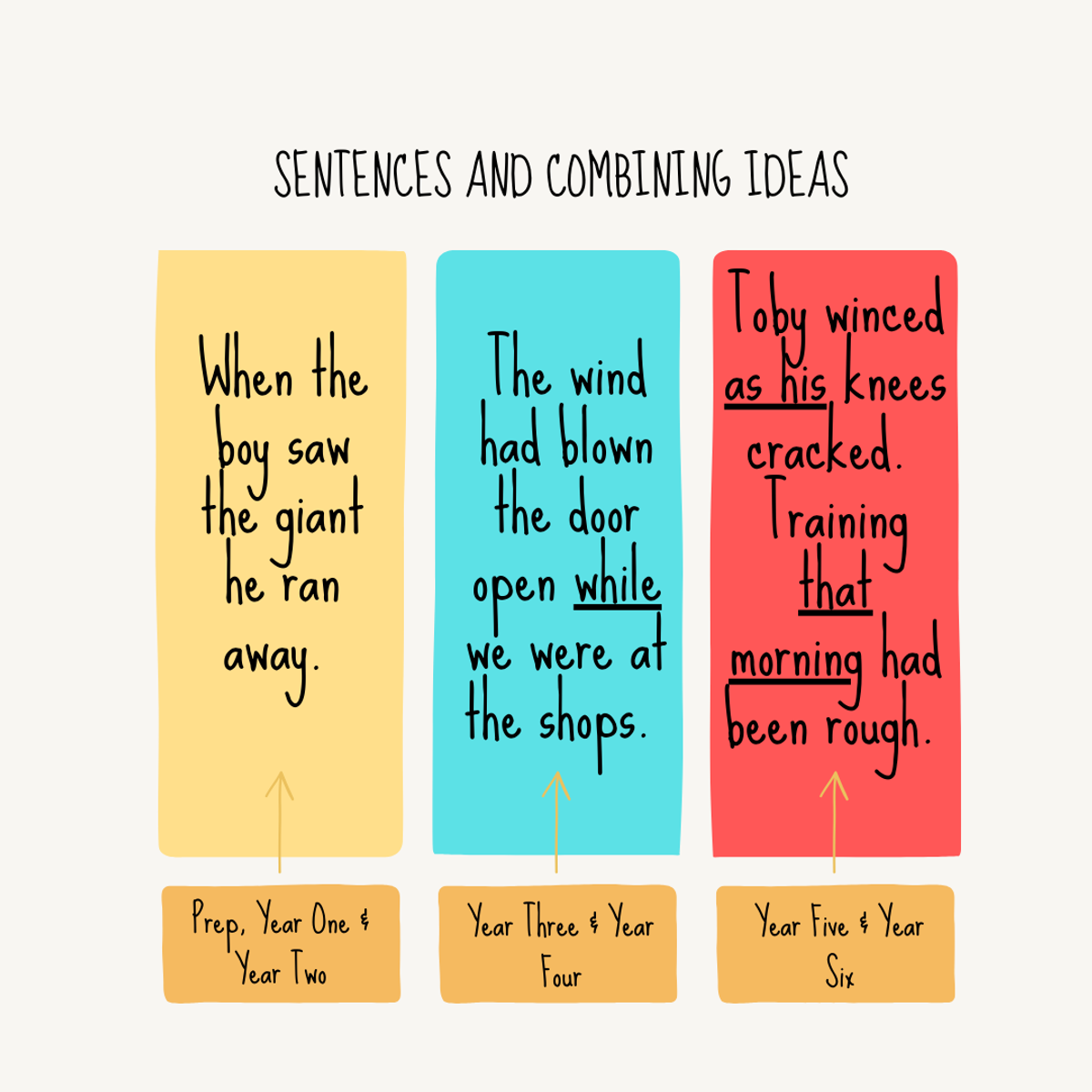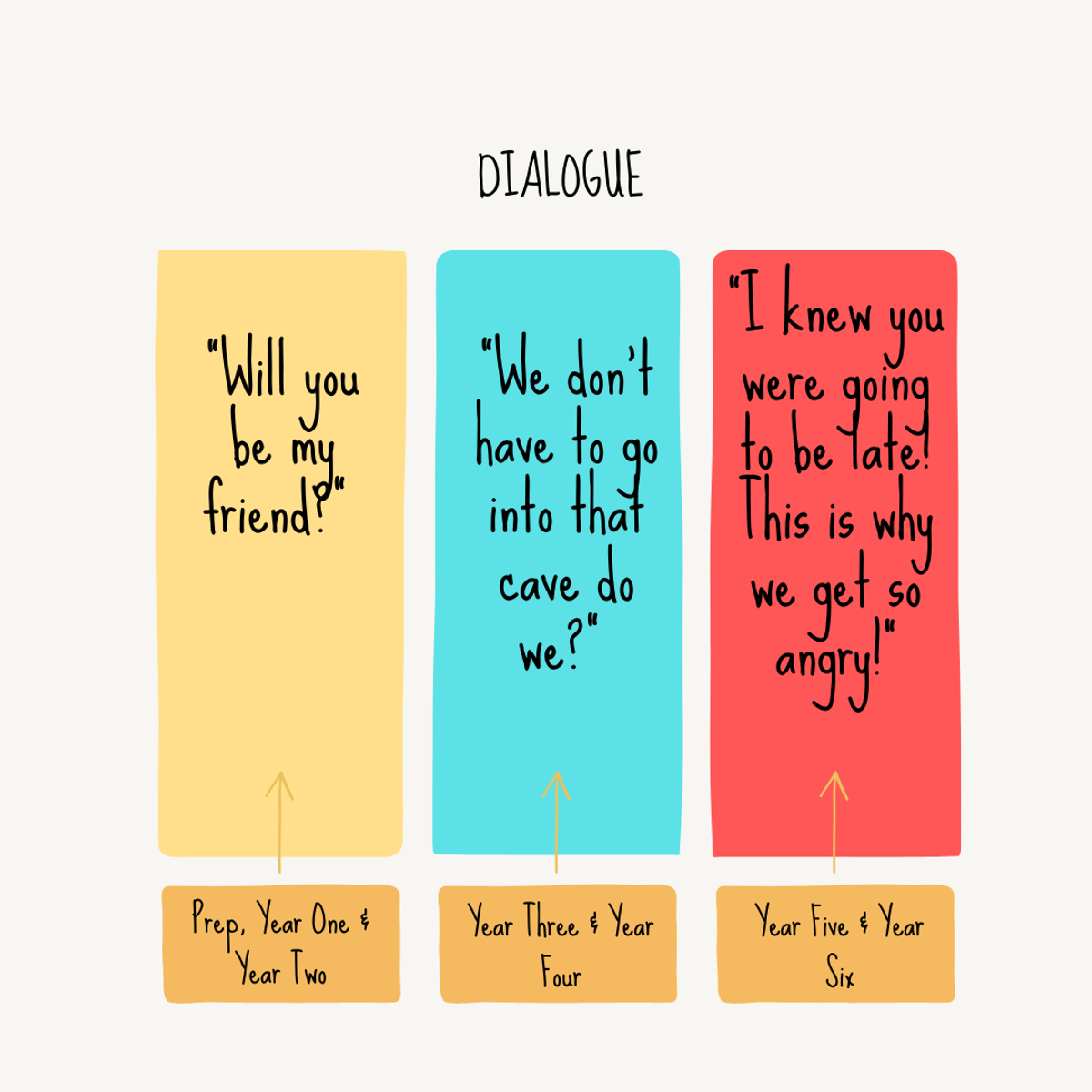English
Great Grammar!

English
Great Grammar!
Our Victorian Curriculum defines the word Grammar in the following way:
The language we use and the description of language as a system. In describing language, attention is paid to both structure (form) and meaning (function) at the level of the word, the sentence and the text.
In essence this is the collection of rules for words, sentences and more that form the basis of writing in the English language. We know at a young age students learn to write words, but grammar involves the way we organise and use these words for expression.
For today's issue I thought we would have a look at some of the Grammar skills as outlined in the Victorian Curriculum; what they are, and what they may look like at different stages of learning.
This is just a short list of grammar skills, there are many more! This list comes predominantly from the narrative text type, so when students are trying to craft creative sentences and stories. As you would expect the detail and the use of these skills is aimed to develop continuously as students move up year levels. Please find a brief description of some of these skills followed by an example of what this may look like in students' writing at each level!
Nouns and Noun Groups
We understand Nouns to be a person, place or thing that may feature in a sentence. Students will often begin using a single noun as the focus of their sentence before working to provide more detail about the nouns they are using.
We also understand students work to correctly use Proper Nouns, the titles of things which require being written with a capital letter.


Verbs and Verb Groups
We understand verbs to be action words, that describe something taking place. Younger students will practice with simpler verbs, often written in the past tense. Older students will practice using different tenses for their verbs, as well as thinking of alternative word choices that may improve the detail and imagery of their writing. For example using the word 'sprinted' instead of the simpler 'ran'.


Adverbs and Prepositional Phrases
Firstly, an adverb is a word that modifies the meaning of a verb, often giving it more detail. Secondly, Prepositional phrases are groups of words which can modify the meaning of a verb, but also nouns, pronouns, adjectives and more. These are used to provide greater detail in sentences. This might occur by changing the meaning of the action word or by placing a verb in time to correctly sequence events in a story.


Sentences and Combining Ideas
A clause in a sentence is where words or groups of words have a relationship to each other. This allows us to write a variety of sentences including longer more descriptive ones. Younger students learn to vary the length and structure of their sentences to make more interesting stories. This skill develops over time so that stories read fluently and don't come across as a series of sentence statements.


Connectives and Conjunctions
These are further examples of joining ideas together in a sentence. The most simple example being the use of the word 'and'; being able to create lists of two or more concepts. In higher year levels these words and sets of words can be used to sequence events and offer a sense of time to the reader to understand how things are progressing in a story.


Dialogue
Dialogue is the writing of the spoken word. Students begin by understanding quotation marks must be used to show that someone or something is speaking. As they develop this skill they use dialogue to continue to show the mood and opinion of their characters, much like how we pick up on how someone is feeling based off how they speak to us!


So there you go! Again this is only a brief list of some of the Grammar skills that students are assisted in developing over time.
We understand the importance of these writing skills, as they better assist students getting their absolutely amazing and creative ideas down on paper. Effectively as they learn students get better and better at showing what they are imagining!
Happy writing!
Tim O'Mahoney
English Leader